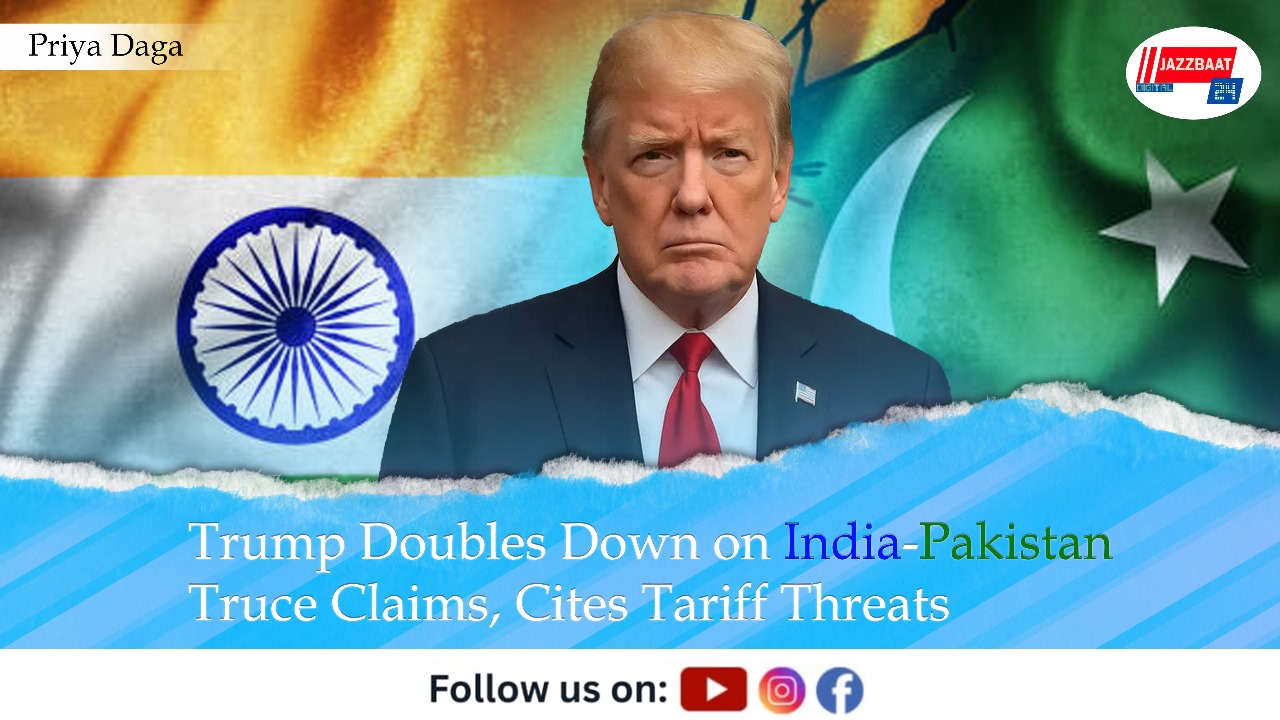US President Donald Trump has once again asserted his role in brokering a ceasefire between India and Pakistan, claiming he threatened both nations with substantial tariffs to force a resolution to their conflict.
Speaking to reporters Sunday as he departed for the Middle East to oversee the release of hostages from Gaza following a ceasefire deal between Israel and Hamas, Trump emphasized that tariffs have become a cornerstone of American diplomatic strategy.
"Tariffs have given us diplomatic and negotiating strength. I settled a few wars just based on tariffs," Trump stated. He specifically cited the India-Pakistan situation as an example, explaining that he warned both nuclear-armed nations of severe economic consequences if they continued their confrontation.
"I said, if you guys want to fight a war and you have nuclear weapons, I am going to put big tariffs on you both, like 100 percent, 150 percent, and 200 percent," the president declared. He added that the threat was effective, claiming he "had that thing settled in 24 hours" and asserting that without the tariff leverage, the conflict would never have been resolved.
However, New Delhi has consistently and firmly rejected Washington's narrative regarding Trump's involvement in any ceasefire agreement. Indian officials have maintained that the truce between India and Pakistan was achieved through direct bilateral negotiations between the military establishments of both countries, without American mediation or intervention.
This represents a significant diplomatic disconnect between the United States and India, with both nations presenting fundamentally different accounts of how the ceasefire came about. India's position effectively contradicts Trump's claims of playing a decisive role in de-escalating tensions on the subcontinent.
The US president also indicated his intention to address another regional conflict, this time between Pakistan and Afghanistan. "I hear there is a war now going on between Pakistan and Afghanistan. I said, I'll have to wait till I get back. I am doing another one. Because I am good at solving wars," Trump remarked.
He claimed this would mark his eighth successful conflict resolution, expressing pride in his peacemaking efforts. "It's an honor to do it. I saved millions of lives," he said, while acknowledging that his recent achievements came too late for consideration for the 2024 Nobel Peace Prize.
Trump's comments came just days after the Nobel Peace Prize was awarded to Venezuelan opposition leader Maria Corina Machado on Friday, dashing any hopes the president may have harbored for receiving the prestigious honor himself.
"In all fairness to the Nobel Committee, it was picked for 2024. But there are those who say you could make an exception because a lot of things happened during 2025 that are done and complete and great," Trump commented. He was quick to add, however, that his motivation was not recognition but saving lives.
Trump's statements underscore his administration's unconventional approach to international relations, using economic pressure and trade policy as primary instruments of diplomacy. The president appears convinced that the threat of punitive tariffs provides unique leverage in resolving international disputes, even those involving nuclear-armed nations.
As Trump heads to the Middle East for what he considers another diplomatic achievement, the gap between American and Indian accounts of recent events highlights the complexities and disagreements that can arise even between strategic partners on matters of historical record and diplomatic credit.
